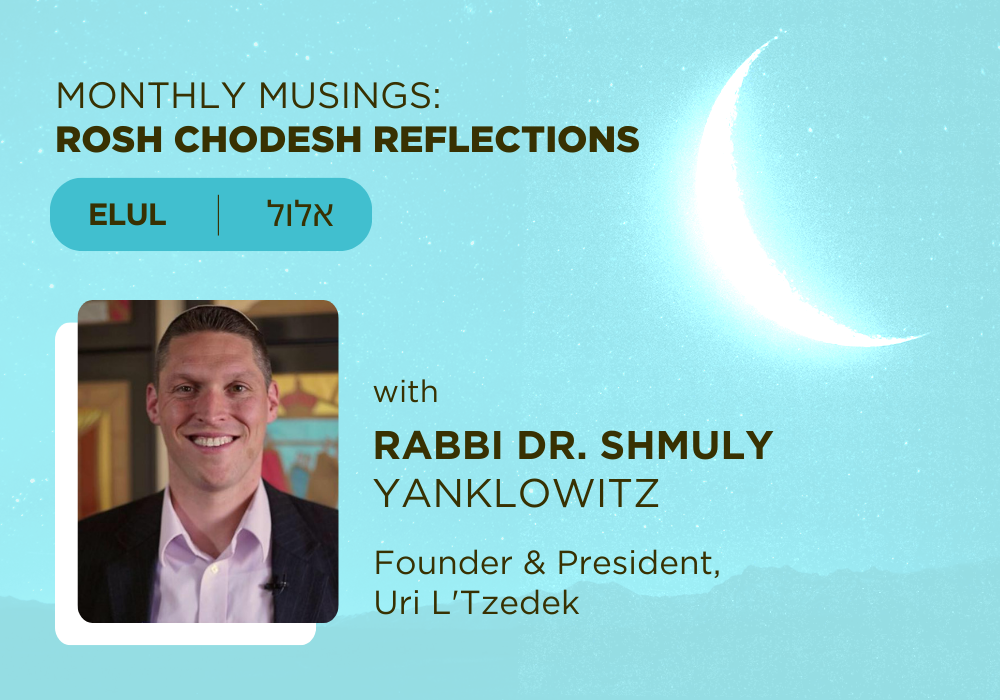Rosh Chodesh Reflections: Monthly Moments of Inspiration


Welcome to Rosh Chodesh Reflections: Monthly Moments of Inspiration, an OLAM blog series!
At the start of each month on the Hebrew calendar, we invite Jewish leaders from around the world to explore the intersection of global responsibility and Jewish values. Join us, and immerse yourself in the rich Jewish tradition of pursuing justice.
This month, Sivan, we hear from Sarah Hurwitz, speechwriter for President Obama and First Lady Michelle Obama and author of Here All Along: Finding Meaning, Spirituality, and a Deeper Connection to Life -- in Judaism.
Q: What advice would you offer to individuals whose Jewish identity is grounded in a commitment to justice?
Sarah: Back when I knew very little about Jewish tradition, I used to tell people that “social justice is my Judaism.” That’s a lovely sentiment, but the truth is that social justice is central to all the major world religions, and plenty of non-religious people are big on it too. One of the five pillars of Islam is “Zakat,” or charity. Christianity originated with a Jew named Jesus who exhorted his followers to care for the least among us. The Bhagavad Gita, a core Hindu text, extols the value of selfless service to others.
Once I started studying Judaism as an adult, I understood that my tradition – like all those others – has its own, unique approach to social justice. Each of these traditions has tremendous moral wisdom to offer. But if you wish to ground your commitment to social justice in the Jewish tradition, I think it’s important to have some sense of what that tradition actually says about social justice beyond just the basics that all traditions agree on (care for the poor, etc.).
Q: How have Jewish texts informed your understanding of tikkun olam (repairing the world) and influenced your approach to addressing societal challenges?
Sarah: I’ve been thinking a lot lately about the old antisemitic lie that Judaism is all about law, not love – that it’s legalistic and unspiritual, mired in weedy, nitpicky details and missing the forest for the trees. That really couldn’t be further from the truth. If you actually study Jewish texts, what you find is just the opposite: Our commitment to specificity, to honing in on the particular details, actually sets a high and rigorous standard for how we must express and embody love in the world.
Take, for example, the Jewish thinking that says that if you’ve loaned money to someone in need, and you know they’re still struggling and can’t afford to pay you back, and you happen to catch sight of them coming down the street toward you, you should actually try to avoid them because running into them would just embarrass them. You could argue that this is “nitpicky” and “legalistic.” But I think you’d be missing the point, which is that this text – and Jewish ethical law in general – is trying to get us to cultivate an exquisite sensitivity to the vulnerability and dignity of every single person we encounter. It’s trying to get us to really see others in their fullest humanity and to respond accordingly.
This Jewish approach makes me skeptical of those who wish to divide people up into neat categories and judge them accordingly. To do so is to dehumanize people, to reduce complex human beings to simplistic labels. I believe Jewish tradition demands that we do the exact opposite.

.png)


